- News
- Reviews
- Bikes
- Components
- Bar tape & grips
- Bottom brackets
- Brake & gear cables
- Brake & STI levers
- Brake pads & spares
- Brakes
- Cassettes & freewheels
- Chains
- Chainsets & chainrings
- Derailleurs - front
- Derailleurs - rear
- Forks
- Gear levers & shifters
- Groupsets
- Handlebars & extensions
- Headsets
- Hubs
- Inner tubes
- Pedals
- Quick releases & skewers
- Saddles
- Seatposts
- Stems
- Wheels
- Tyres
- Tubeless valves
- Accessories
- Accessories - misc
- Computer mounts
- Bags
- Bar ends
- Bike bags & cases
- Bottle cages
- Bottles
- Cameras
- Car racks
- Child seats
- Computers
- Glasses
- GPS units
- Helmets
- Lights - front
- Lights - rear
- Lights - sets
- Locks
- Mirrors
- Mudguards
- Racks
- Pumps & CO2 inflators
- Puncture kits
- Reflectives
- Smart watches
- Stands and racks
- Trailers
- Clothing
- Health, fitness and nutrition
- Tools and workshop
- Miscellaneous
- Buyers Guides
- Features
- Forum
- Recommends
- Podcast
TECH NEWS
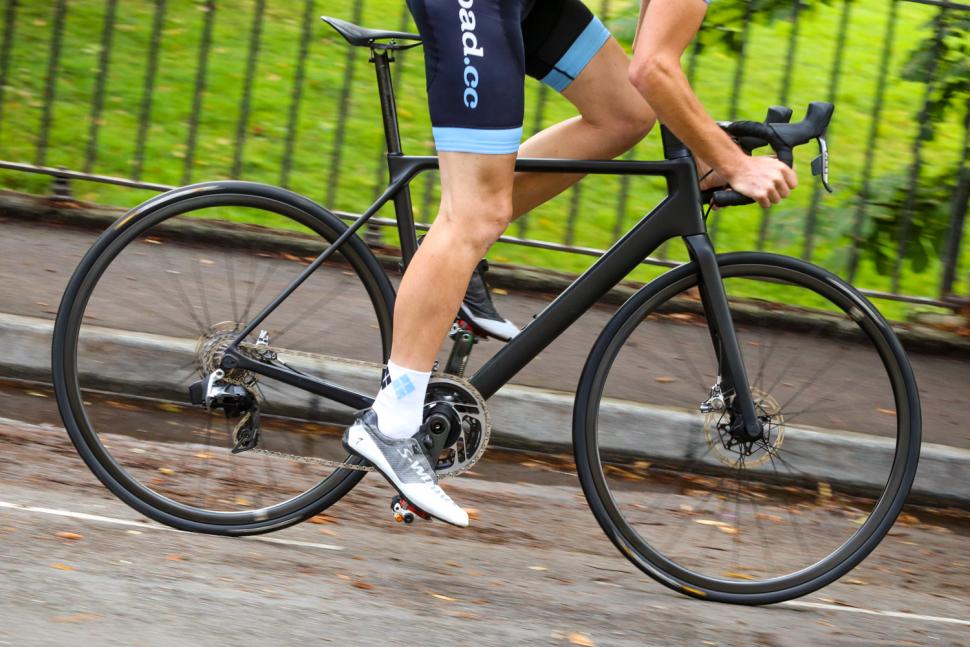 Canyon Ultimate CF Evo Disc 10.0 LTD - riding 1.jpg
Canyon Ultimate CF Evo Disc 10.0 LTD - riding 1.jpgFirst Ride: Canyon Ultimate CF Evo Disc 10.0 LTD - 6kg carbon disc road bike the lightest production disc braked bike yet? (+video)
Canyon has history when it comes to pushing the boundaries of what’s possible with road bike design, and its new Canyon Ultimate CF Evo Disc 10.0 LTD once again nudges the envelope. It weighs 6.06kg (13.3lbs) for a size medium.
That low weight makes it possibly the lightest production disc road bike you can buy right now. Since their introduction, disc brakes have meant a weight penalty, due to reinforced frames, forks and wheels as well as heavier brake components.
Back in 2015 Focus launched the Izalco Max Disc, heralded as the world’s lightest production disc road bike. It weighed 6.8kg (14.99lb), bob on the UCI’s weight limit for pro race bikes. More recent, and lighter too, is the Specialized S-Works Tarmac SL6, which with a Dura-Ace Di2 groupset (including the power meter) weighed 6.6kg. Disc bikes are getting lighter, but still heavier than their rim brake counterparts.
Before you rush to the comments, yes there have been lighter bikes. But those are either with rim brakes or lots of very special and expensive components. Canyon has achieved this impressive low weight with largely standard equipment. To see just how light you can go, we’ve rounded some of the best examples here.
What’s it like to ride then?
If you want hydraulic disc brakes in the lightest off-the-shelf package, the Canyon Ultimate CF Evo Disc 10.0 LTD looks like your best option right now. And to find out what it is like to ride, I was given a few days to get to grips with it and so headed out twice daily for the hilliest rides in my local Cotswolds that I could muster the energy to tackle. Here’s how I got on.
I’ve ridden some light bikes in my time. A few years ago a 6kg carbon race bike passed through my bike shed and it was very impressive, but to get a bike weighing the same with an electronic groupset and hydraulic disc brakes is something else. Previous to this, the Specialized S-Works Tarmac Disc or Focus Izalco Max Disc have been the lightest disc-equipped bikes I’ve hammered around my local roads on.
With this new Ultimate, the low weight is not only jaw-dropping on paper, but it is also breathtaking on the road. From the first pedal stroke, it feels very special. How light it feels to you will depend on what you’re used to, but regardless of the bike weight you’re coming from, it’s hard not to be impressed by the lack of weight that is very apparent when riding the Ultimate CF Evo Disc.
Weight is everything on the climbs, so I headed up all my local climbs (including the ones I normally avoid!) to see how it fared. My local area has a good mix: long steady gradients that let you get into a good rhythm to intensely steep hills that call for very low gears, and just a fair bit of grunting. Suffice to say, the Ultimate CF Evo Disc flew up all the climbs faster than any disc brake road bike I’ve tested. A look through Strava revealed a load of new PRs. Not the most scientific test I know, but I’m not getting any fitter so it must be all down to the bike…
There’s a high level of stiffness apparent when you’re climbing, whether seated or out of the saddle. It feels like a much sharper and tauter version of the Ultimate, a scalpel blade to a regular kitchen knife. That extra stiffness comes from the use of ultra-high modulus and ultra-high tension carbon contributing to a higher stiffness-to-weight ratio than the regular Ultimate, and it means a lightning-quick response to your inputs through the handlebars and pedals.
Stand up and give the pedals a shove and it darts forward. There’s no flex in the frame that I could detect. Every pedal stroke propels the bike forward in quite a dramatic fashion. It’s almost overwhelming and encourages you to push harder on the climbs, rather than sitting back and spinning slowly to the summit, you’ll be surging to the top until your body becomes the limiting factor.
Thankfully, that extra stiffness doesn’t mean a harsh ride. Comfort has always been a positive trait of the regular Ultimate and the pursuit of low weight hasn’t unduly compromised the ride smoothness of this version. On poorly surfaced roads it feels composed, perhaps a hint of extra feedback coming through the frame and fork, but not enough to mean it’s no good for long rides. It’s no magic carpet, but it won’t wear you out.
What will wear you out is the saddle. It’s not as uncomfortable as it looks, thanks to the shape and a bit of flex in the all-carbon construction. However, as with any carbon saddle with no padding that I’ve tested in the past, it just feels hard and the feeling never goes away. A good saddle should pretty much disappear, this one doesn’t. If it was my bike, I’d take a hit on the weight and fit a heavier, more comfortable saddle.
The handling is similar to the regular Ultimate, no great surprise as they share the same race-tuned geometry. But as mentioned earlier, it feels sharper and more focused. You do have to be on it riding this bike - the first time I rode it for a photoshoot outside the office I nearly binned it into a parked car when circling back for another ride past the photographer. The steering is fast! So yes you have to be alert because it might just catch you out.
What goes up quickly also comes down quickly too. The impressive thing about the Ultimate CF Evo Disc is that while it’s aimed at devouring mountains, it’s also pretty handy on the descents. It’s a bit livelier than a heavier disc-equipped race bike like a Tarmac or SuperSix Evo, and occasionally it was a bit skitty when the road surface got a bit rough, but for the most part, it felt pretty stable on fast and technically challenging descents. It certainly doesn't feel fragile and far from holding back on the descents, you can crack on.
The SRAM hydraulic disc brakes help too, being stupendously powerful with lovely modulation which gives excellent control in the corners. The tyres were okay, grippy and fast-rolling, but I'd probably swap them for a Grand Prix 5000 and think about going up to a 28mm just to deliver a bit more isolation from the rough roads that are common around my way.
So if you want to hammer up hills and mountains and can afford it, this is a devastatingly quick climber. But if you want an even lighter Ultimate and aren’t bothered about disc brakes, the Ultimate CF Evo 10.0 SL weighs a claimed 5.10kg and costs £8,099.
How has Canyon achieved this low weight?
Canyon has used its current Ultimate, now starting to show its age since first being introduced in 2015 and updated with disc brakes in 2017, as the starting point then shoved some high-grade carbon fibre into the mould, along with a refinement of the layup, to get the frame weight down to 641g for a size medium. That’s 120g lighter than the regular Ultimate.
The fork is made from the same high-end carbon as well and weighs in at 285g as a result. The one-piece Evocockpit handlebar hasn’t escaped the attention of this new carbon, and now weighs 270g, whilst maintaining the same aero profile and internal routing.
As well as shedding weight on the inside of the frame, weight has also been saved on the exterior through the use of a thin coat of matte black paint and scaling back of the decals to very small graphics on the top and down tube. They are gold for a bit of bling and to let people who get close enough to your pride and joy realise it’s something a bit special.
But personally, as much as I appreciate the pursuit of saving weight, the black is a bit boring and it would be nice to have a choice of colours. Imagine buying a Porsche 911 and it was only offered in one colour? The bike industry can do better than this.
There are a few more details that have saved weight. Lighter thru-axles, titanium hardware for the internal seat clamp, and neatest of all the carbon fibre front mech mount.
Weight has been saved through the use of carefully selected components. The SRAM Red eTap AXS groupset isn’t the lightest groupset ever manufactured, but you are getting slick wireless gear shifting and powerful hydraulic disc brakes. Canyon has chosen a 48/35 chainset with a 10-28t cassette.
Wheels are a prime component for weight saving. Canyon has chosen the new DT Swiss PRC 1100 DICUT 25Y Edition wheels. Launched earlier this year, they cost £2,999.98 but weigh a claimed 1,283g thanks to a full carbon fibre rim with a low profile design and new 180 hubs and a lighter freehub. They're just about one of the lightest disc brake carbon clincher wheelsets money can buy right now.
But the best bit is the debossed logos that are created in the mould. It’s also worth adding that manufacturing takes place in Europe - most carbon bike wheels are made in the Far East. Saving yet more weight are Continental Grand Prix TT (time trial) tyres. They weigh just 190g and measure 25mm wide.
Then there’s the Selle Italia SLR C59 saddle if you can call it that, which is all-carbon and weighs just 61g. It’s clamped to a Schmolke TLO 120g carbon fibre seatpost, a rare brand that weight weenies will be very familiar with.
This bike could be even lighter if you were prepared to throw more case at it. Shimano Dura-Ace Di2 and Campagnolo Super Record disc groupsets are lighter. A tubular wheelset might shed a bit more weight too, and there are lighter handlebar and stem setups.
Is it worth the money?
If you want the lightest production disc brake road bike currently available, then yes. What is impressive is just how usable and dependable the Ultimate is despite the weight-saving plan it has been put through.
In the past ultra-lightweight bikes were made for mountain stages only, they were just too fragile to be used every day. What the Ultimate does is to showcase just how far road bike tech has come in the past few years, that you can get a bike this light with very few compromises. And with disc brakes too, which have been dragging behind rim brakes in the weight battle.
You could happily ride this bike every day. It’s got decent comfort and the handling, and though livelier than the regular Ultimate it is easy to get on with. I didn’t have the bike long enough to get under its skin and live with it for several weeks, but after a few days, I was left feeling very impressed.
Costing £9,099, it’s not cheap. But look around at what else you can get for this sort of cash. Nothing comes even close on the scales. A Specialized S-Works Tarmac Disc weighs 6.6kg but you do get 50mm deep aero wheels and a power meter. A Trek Emonda SLR 9 Disc runs the Canyon close with a claimed 6.42kg weight due to a 665g frame with Dura-Ace Di2 and Bontrager Aeolus XXX carbon wheels.
Would I buy it? If I had the money, yes. It’s super light but still handles, steers, stops and goes in the way a modern road bike does. And 100% yes if I lived in the mountains.
But I don't live in the mountains and here is my dilemma. I can’t help feeling that an aero bike would be of a greater benefit for the majority of my riding on undulating roads. Once up to speed, the biggest force you face is wind resistance, and unless you’re on a steep climb, the lack of weight is of negligible benefit. The latest Specialized S-Works Venge is only just over 1kg heavier but you're getting all the aero advantage which arguably is going to benefit you more of the time.
If Canyon could just make an Aeroad that weighs this little, that would be lovely.
As an exercise of what’s possible though, it’s a fantastic product and points to where the modern lightweight road bike is going. It does have all the hallmarks of a swan-song for the current generation Ultimate though, the last hurrah before the new version is introduced. But what a way to bow out! I can’t wait to see where Canyon’s engineers could take the Ultimate in the next step of its evolutionary journey. But for now, revel in the lightest production disc brake road bike in the world.
More info at www.canyon.com
David worked on the road.cc tech team from 2012-2020. Previously he was editor of Bikemagic.com and before that staff writer at RCUK. He's a seasoned cyclist of all disciplines, from road to mountain biking, touring to cyclo-cross, he only wishes he had time to ride them all. He's mildly competitive, though he'll never admit it, and is a frequent road racer but is too lazy to do really well. He currently resides in the Cotswolds, and you can now find him over on his own YouTube channel David Arthur - Just Ride Bikes.
Latest Comments
- Sniffer 23 min 44 sec ago
Can't answer your question directly, but if you do decide to buy a new Turbo I noticed that Halfords have Elite trainers that would be perfect for...
- KDee 33 min 37 sec ago
I just spat tea over my keyboard reading that
- chrisonabike 1 hour 10 min ago
Apparently I liked that comment, but I have no memory of that....
- StevenCrook 1 hour 13 min ago
All of your price links appear to be pointing to the non pro version...
- Surreyrider 2 hours 15 sec ago
Good try. Won't work.
- Surreyrider 2 hours 2 min ago
More than six times over the legal limit? She's the winner here. Her punishment is insufficient.
- Smoggysteve 2 hours 16 min ago
Sram only have a foot in the market with regards to road bike abd mountain bike (and loose variations of) The rest of the bicycles sold around the...
- wtjs 3 hours 32 min ago
so my hands are near the brake levers...
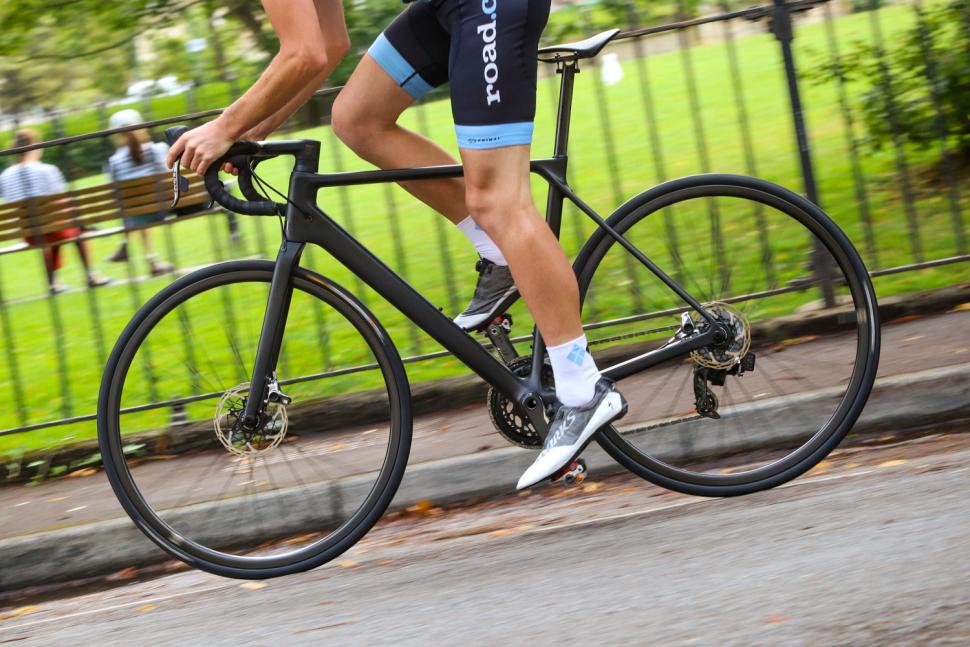

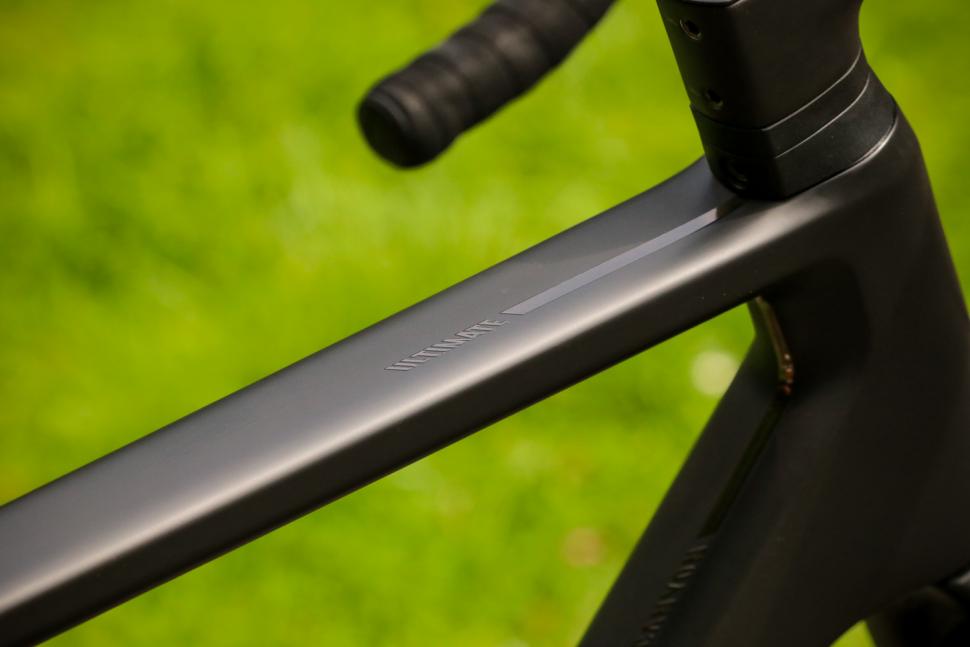
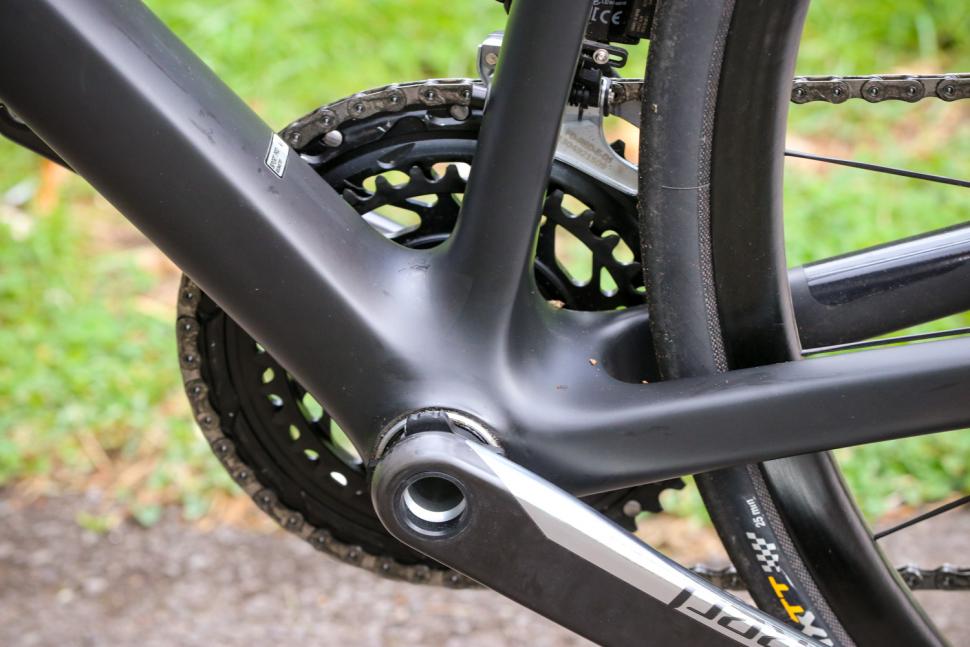
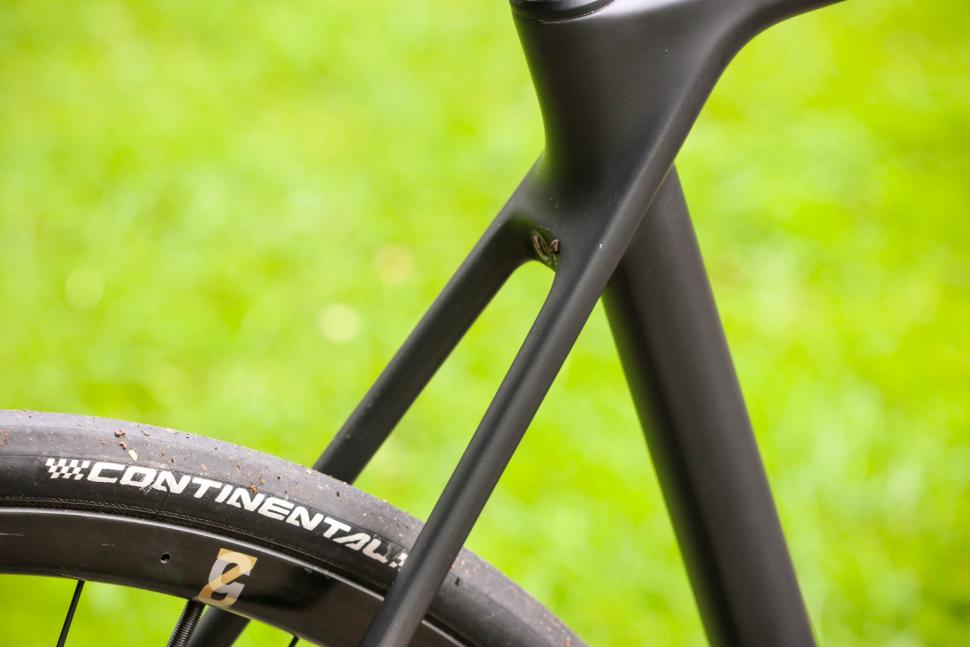
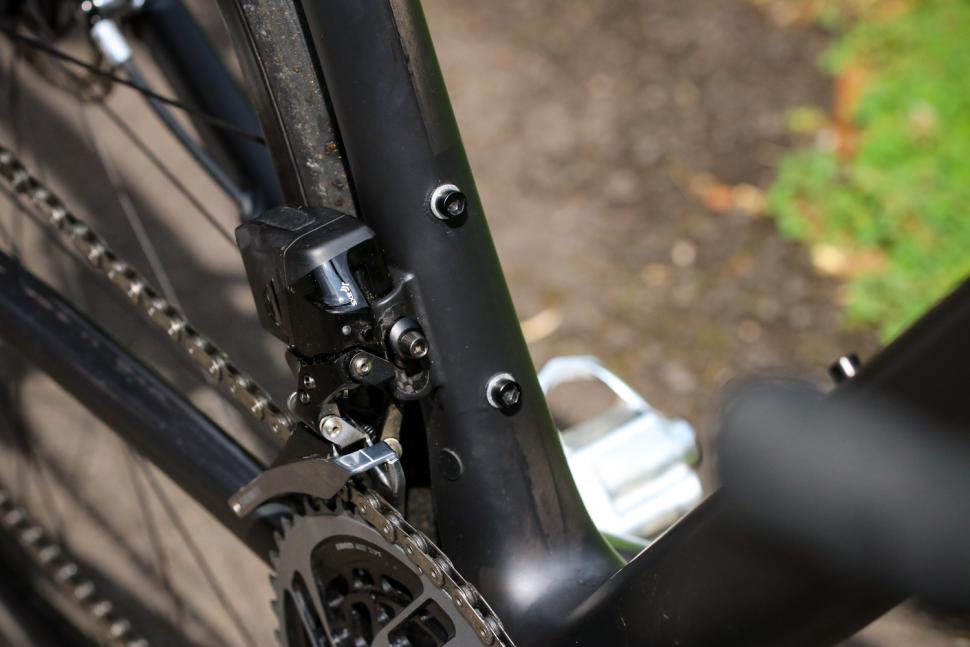
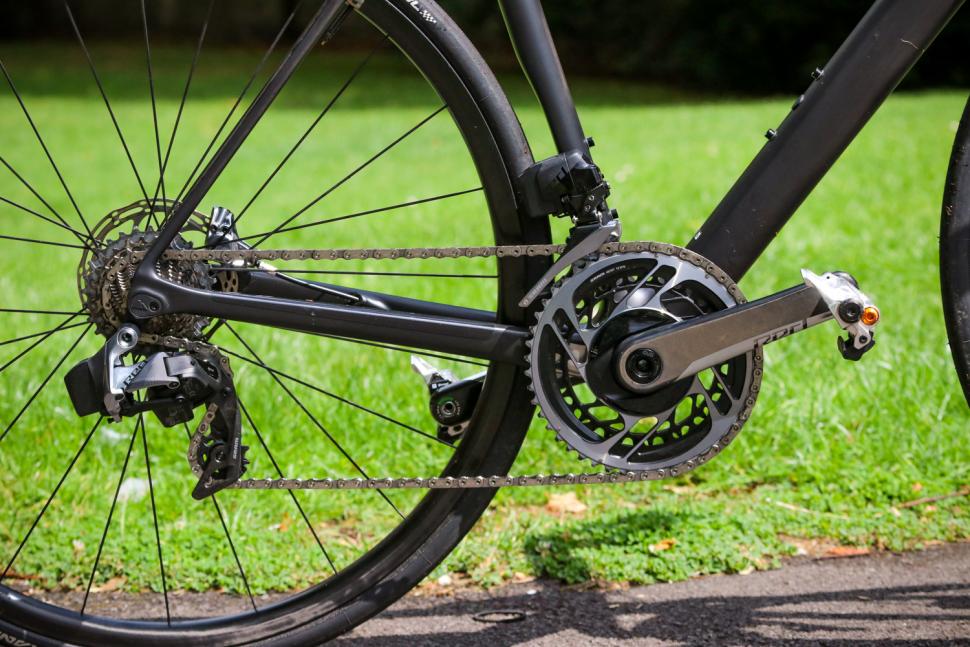

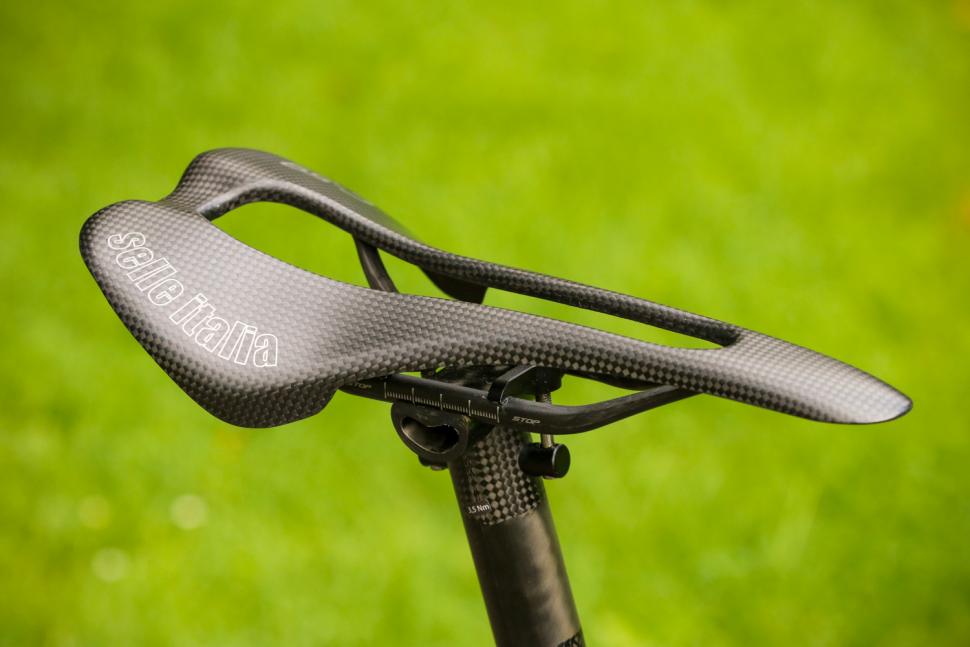

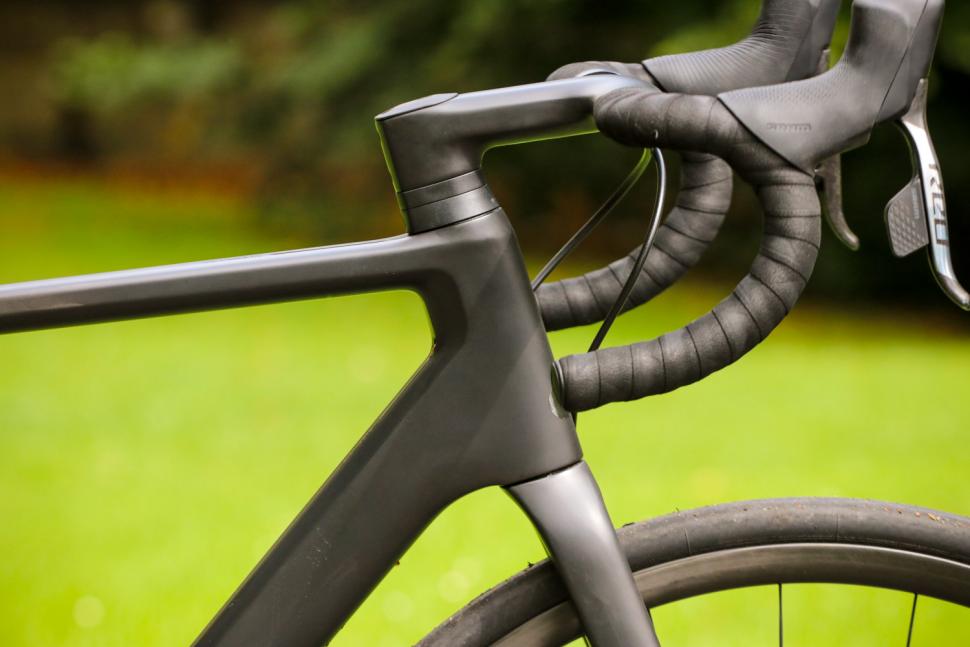
Add new comment
5 comments
Most of the women in my club beat the men who pitch up with stupidly expensive bikes. These men are mostly overweight guys 85 to 95kg so what difference will a stupidly fragile lightweight bike make when they face their first hill? RoadCC are guilty of promoting expensive bikes to people who are just wasting money. Few if any of the customers of these bikes will ever actually race.
Neither will most of the people buying a 911 or any high-performance sports car. Nothing wrong with that, either.
Ace review and sounding bike... must admit though the whole murdered out black look of it doesn't make it look like a nine grand bike.
Beauty is in the eye of the beholder. By heck , it's ugly. Bet it's nice to ride. Comment is personal above about tyres and saddle as 25mm is fine and normal for fast road work and virtually all comments about saddle fit can only be personal.
The saddle and tires are the biggest giveaway here. Swapping them for something usable would add around 350g, which would still result in an impressively light bike.
But to your point though, about the aero Specialized Venge arguably being a better option despite the 1kg weight penalty—really? You can’t really feel the gains of 1 second per kilometre, but you can definitely feel the surge of acceleration when the light turns green, or, grinding up a hill on a Thursday ride home from work. It’s possible to make a case for aero advantages over weight for a certain segment of cyclists, but, for the vast majority, weight really is the deciding factor, not aerodynamics.